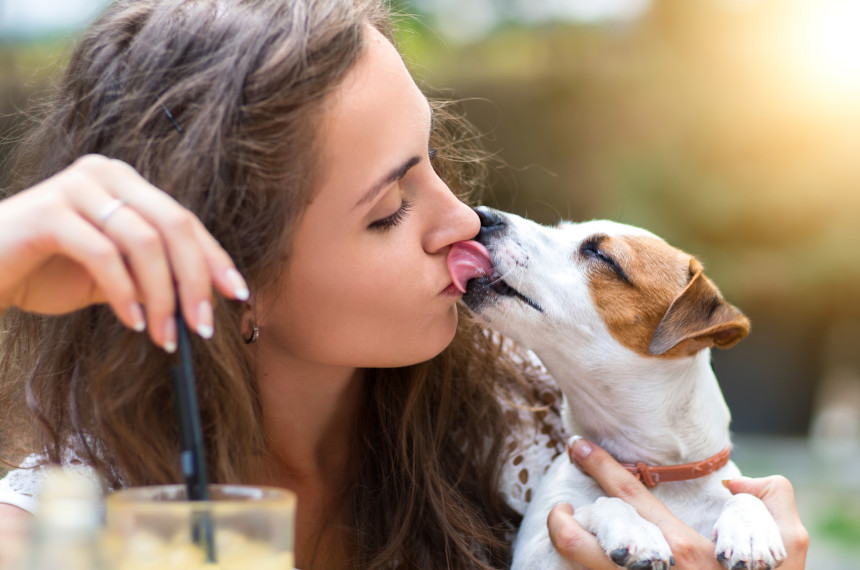“Your Health Checkup” is our online column by Dr. Douglas Zipes, an internationally acclaimed cardiologist, professor, author, inventor, and authority on pacing and electrophysiology. Dr. Zipes is also a contributor to The Saturday Evening Post print magazine. Subscribe to receive thoughtful articles, new fiction, health and wellness advice, and gems from our archive.
Order Dr. Zipes’ new book, Bear’s Promise, and check out his website www.dougzipes.us.
I love animals and have had dogs as pets for many years. It’s important to keep your pets healthy since on occasion they can make you sick through bites, scratches, or other direct contact of human skin or mucous membranes such as the mouth or tongue. Other sources of exposure include contact with animal saliva, urine, and other body fluids or secretions, inadvertent ingestion of animal fecal material, inhalation of infectious aerosols or droplets, and through the bite of a spider, flea, tick, and other similar vectors harbored by the pet.
The following are some examples of the more than 70 diseases in humans that can be caused by animals.
- COVID-19 is known to spread from humans to dogs and cats. While there is no credible information that the animal can pass the infection back to humans, an abundance of caution suggests you should isolate from your pet if you become infected with the COVID virus.
- Ringworm is a contagious fungal infection that presents as a circular rash and can be spread to humans from many different animals as well as from human to human. It is usually treated with topical antifungal agents.
- Lyme disease is caused by the bite of blacklegged (deer) ticks infected with the bacterium Borrelia burgdorferi. While dogs and cats with Lyme disease cannot spread it to humans, they may harbor the ticks in their fur that can infect humans.
- Parasitic worms such as roundworms can infect dogs and cats and be passed to humans in animal feces containing worm eggs. Careful disposal of animal excrement while wearing gloves and thorough hand washing is recommended.
- Cat scratch fever is an infection caused by the bacterium Bartonella henselae, and is carried by 40 percent of cats at some point in their lives. It is spread to humans by cats licking an open wound or a scratch or bite that opens the skin. Avoiding cats licking an open wound and washing a cat scratch or bite thoroughly with soap and water and applying an antiseptic is recommended.
- Toxoplasmosis is caused by a microscopic parasite, especially common in cats, that can spread to humans in contact with the animal feces. It can cause significant harm to the fetus in pregnant women but is typically not significant in otherwise healthy people. As noted above, careful cleanup of animal feces such as the cat litter box is a must, and pregnant or soon-to-be-pregnant women are advised to avoid cleaning the litter box at all.
- Leptospirosis is caused by a bacterium found in the urine of many animals and can spread to humans in contact with the animal urine or drinking infected water.
- Salmonellosis is usually a gastrointestinal infection caused by a bacterium that lives in the intestinal tract of animals. While salmonella infection is most commonly transmitted by ingesting infected food sources, pets such as chickens and other birds, turtles, frogs, dogs, cats, and horses can transmit the disease.
- Psittacosis is bacterium causing parrot fever from infected parrots, pigeons, and many species of birds that presents as a severe pneumonia. The infection routes are by mouth-to-beak contact, or through the airborne inhalation of feather dust, dried feces, or the respiratory secretions of infected birds.
- Methicillin resistant staph aureus bacterial infections can be transmitted from dogs, cats, birds and other animals to humans and vice versa.
- Rabies is a deadly virus spread to humans in the saliva of an infected animal, usually transmitted through an animal bite.
How to Prevent Infections from Animals to Humans
- The number one recommendation is to wash hands vigorously after contact with animals or their waste
- Keep a pet healthy and free from infections with appropriate vaccinations, flea and tick prevention, and regular veterinarian checkups
- Wear gloves to clean up animal feces and wash hands thoroughly afterward
- Dispose of animal waste in plastic bags in appropriate containers
- Wash pet bedding regularly and clean litter boxes or cages frequently
- Clean high contact surfaces such as countertops and tables and avoid food contamination with pet waste
- Don’t let animals lick human open wounds or mucous membranes (e.g. mouth, tongue)
Pets are wonderful companions and help us live longer, healthier, and happier lives. Enjoy them, love them, but remember that certain precautions to keep you and your pet healthy are warranted.
Featured image: shulgenko / Shutterstock
Become a Saturday Evening Post member and enjoy unlimited access. Subscribe now



